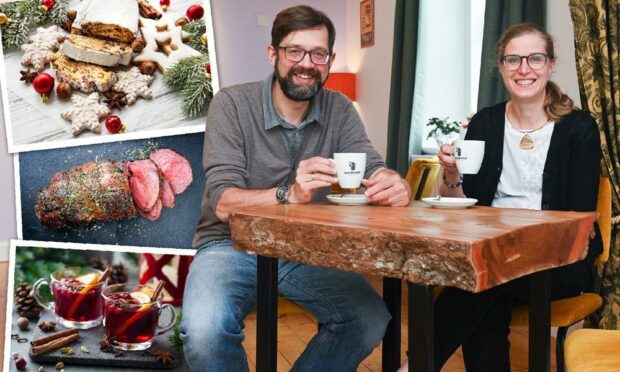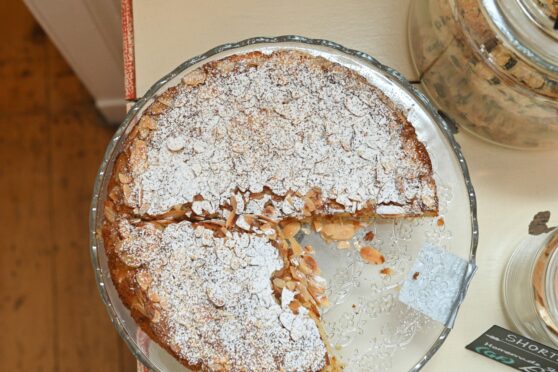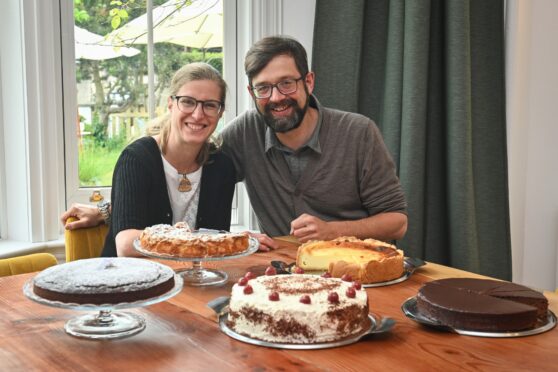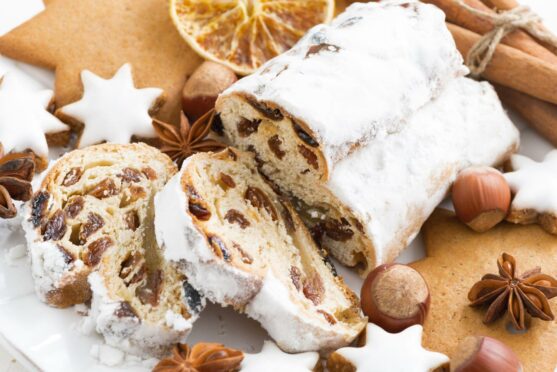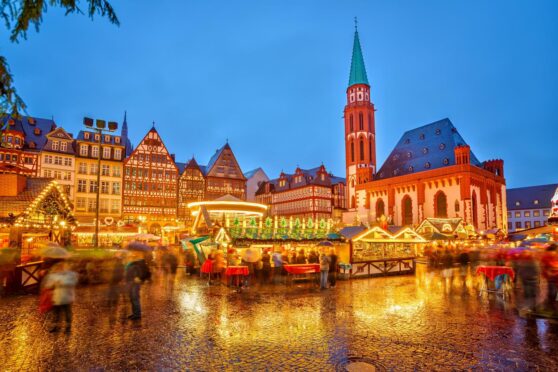In Germany, the festive period is a time for reflection, relaxing and spending time with friends and loved ones.
There are little to no parties, which is a huge difference compared to how the season is celebrated here in Scotland.
Anika, 40, and Andreas (Andy), 53, Schulz relocated to the Highlands around six years ago from Munich Bavaria, south Germany and went on to open their own cafe in Nairn, known as Cafe Lavender, in July last year.
It is based in the couple’s bed and breakfast, Cawdor House, which was built in 1849 as the Manse for the Free Church.
The cafe offers a German tradition of Kaffee and Kuchen (coffee and cake). And during the festive period, this includes treats that are served up in Germany throughout Christmas.
Christmas in Germany
One thing that Anika, who studied economics and tourism and worked for more than 20 years in the hospitality and accommodation sector, and Andy, a well-known photographer, are keen to emphasise is that Christmas in Germany involves a lot of baking.
The recipe for Christmas biscuits was, and remains, one of the couple’s favourites.
Anika said: “Stollen is one of the most popular foods to make and eat in the run-up to Christmas – known as Adventszeuit in Germany.
“It is a traditional German fruit bread containing nuts, spices, and dried or candied fruit, coated with powdered sugar or icing sugar and often containing marzipan.
“Other than that, Christmas biscuits and mulled wine are also well-liked.
“During the season, you are baking with family and friends a lot and often meet at the Christmas markets after work.”
Andy added: “That’s definitely what we miss most about Christmas in Germany. The markets.”
Carrying traditions over
While we Scots consider Christmas Day the most important day during the season, it is Christmas Eve that takes the top spot in Germany.
This is when families and friends exchange gifts and erect their Christmas trees.
“Our main evening is Christmas Eve,” Anika said. “That’s when everyone gets their presents.
“I have fond memories of my parents ringing a bell after winter walks on Christmas Eve, and we would come into the living room with the tree up, candles lit and all our presents laid out.”
Andy added: “We do also have Christmas lunch or dinner though, which isn’t much different to what’s served here. Instead of turkey, we usually have roast of venison.”
Above all, mince pies are Anika and Andy’s favourite traditional Scottish treat enjoyed at Christmas.
Andy said: “The season is a lot quieter back home. It’s a time to focus on yourself, meet with friends and family and reflect on the past year.
“We have continued our traditional German Christmas in Scotland, together with Anika’s mother and, before Covid, Andy’s brother too.”
Vanille kipferl
Makes 25
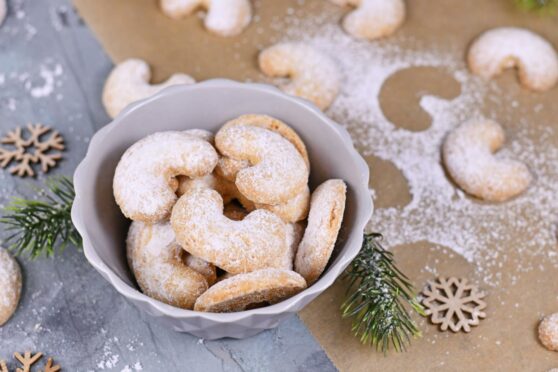
Ingredients
- 280g flour
- 210g butter
- 70g sugar
- 100g ground almonds
For the coating
- 75g vanilla sugar
- 75g icing sugar
Method
- Preheat the oven to 140C Fan/160C/320F/Gas Mark 3.
- Bring all ingredients (minus the coating ingredients) together in a mixer and make a dough. Place the dough in the fridge for 30 minutes.
- Remove the dough from the fridge and form small croissant-shaped biscuits and bake for 11 minutes.
- Mix the vanilla sugar and icing sugar together. Roll the biscuits (still warm) in the sugar mixture and let them cool down completely.
